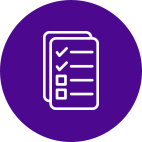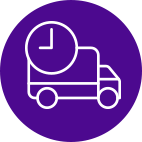Complete a quick medical questionnaire to help determine if Afrezza is right for you.
This event repeats and occurs the third Tuesday of every month. Is it three months before your next Endo appointment and you have a burning question? Hop onto JDRF’s “Ask the Endo” virtual session with Dr. Saleh Adi – semi-retired and former Director of the Madison Clinic for Pediatric Diabetes at UCSF Children’s Hospital, JDRF Board member, and co-founder of Tidepool. Whether you have a question on type 1 diabetes (T1D) technology, carb counting, or his personal favorite – how to make sense of your CGM data, Dr. Adi is available to help answer your questions. Meet the T1D community while you learn about the latest in research, technology, and resources. Stay on for a full hour of learning, or just jump on for a short time. This free event is for adults and families living with T1D.
Afrezza is a man-made insulin that is breathed-in through your lungs (inhaled) and is used to control high blood sugar in adults with diabetes mellitus.
What is the most important information I should know about Afrezza? Afrezza can cause serious side effects, including:
Sudden lung problems (bronchospasms). In a study, some Afrezza-treated patients with asthma, whose asthma medication was temporarily withheld, experienced sudden lung problems. Do not use Afrezza if you have long-term (chronic) lung problems such as asthma or chronic obstructive pulmonary disease (COPD). Before starting Afrezza, your healthcare provider will give you a breathing test to check how your lungs are working.
Important Safety Information(cont’d)
Who should not use Afrezza®?
Do not use Afrezza® if you:
- Have chronic lung problems such as asthma or COPD.
- Are allergic to regular human insulin or any of the ingredients in Afrezza®.
- Are having an episode of low blood sugar (hypoglycemia).
What should I tell my healthcare provider before using Afrezza®?
Before using Afrezza®, tell your healthcare provider about all your medical conditions, including if you:
- Have lung problems such as asthma or COPD
- Have or have had lung cancer
- Are using any inhaled medications
- Smoke or have recently stopped smoking
- Have kidney or liver problems
- Are pregnant, planning to become pregnant, or are breastfeeding. Afrezza® may harm your unborn or breastfeeding baby.
Tell your healthcare provider about all the medicines you take, including prescription and over-the-counter medicines, vitamins or herbal supplements.
Before you start using Afrezza®, talk to your healthcare provider about low blood sugar and how to manage it.
What should I avoid while using Afrezza®?
While using Afrezza® do not:
- Drive or operate heavy machinery, until you know how Afrezza® affects you.
- Drink alcohol or use over-the-counter medicines that contain alcohol.
- Smoke.
What are the possible side effects of Afrezza®?
Afrezza® may cause serious side effects that can lead to death, including:
See “What is the most important information I should know about Afrezza®?”
- Low blood sugar (hypoglycemia). Signs and symptoms that may indicate low blood sugar include:
- Dizziness or light-headedness, sweating, confusion, headache, blurred vision, slurred speech, shakiness, fast heartbeat, anxiety, irritability or mood change, hunger.
- Decreased lung function. Your healthcare provider should check how your lungs are working before you start using Afrezza, 6 months after you start using it, and yearly after that.
- Lung cancer. In studies of Afrezza® in people with diabetes, lung cancer occurred in a few more people who were taking Afrezza® than in people who were taking other diabetes medications. There were too few cases to know if lung cancer was related to Afrezza®. If you have lung cancer, you and your healthcare provider should decide if you should use Afrezza®.
- Diabetic ketoacidosis. Talk to your healthcare provider if you have an illness. Your Afrezza® dose or how often you check your blood sugar may need to be changed.
- Severe allergic reaction (whole body reaction). Get medical help right away if you have any of these signs or symptoms of a severe allergic reaction:
- A rash over your whole body, trouble breathing, a fast heartbeat, or sweating.
- Low potassium in your blood (hypokalemia).
- Heart failure. Taking certain diabetes pills called thiazolidinediones or “TZDs” with Afrezza® may cause heart failure in some people. This can happen even if you have never had heart failure or heart problems before. If you already have heart failure it may get worse while you take TZDs with Afrezza®. Your healthcare provider should monitor you closely while you are taking TZDs with Afrezza®. Tell your healthcare provider if you have any new or worse symptoms of heart failure including:
- Shortness of breath, swelling of your ankles or feet, sudden weight gain.
Treatment with TZDs and Afrezza® may need to be changed or stopped by your healthcare provider if you have new or worse heart failure.
Get emergency medical help if you have:
• Trouble breathing, shortness of breath, fast heartbeat, swelling of your face, tongue, or throat, sweating, extreme drowsiness, dizziness, confusion.
The most common side effects of Afrezza® include:
- Low blood sugar (hypoglycemia), cough, sore throat
These are not all the possible side effects of Afrezza®. Call your doctor for medical advice about side effects.
You are encouraged to report negative side effects of prescription drugs to the FDA. Visit www.fda.gov/medwatch, or call 1-800-FDA-1088 (1-800-332-1088).
Please See Full Prescribing Information, including BOXED WARNING, Medication Guide and Instructions for Use for Afrezza.
Afrezza, the Afrezza logo, AfrezzaAssist, AfrezzaAssist and logo, and MannKind are registered trademarks of MannKind Corporation. © 2025 MannKind Corporation.
This site is intended for use by U.S. residents only.
Talk to a Doctor Online in just a few steps


Schedule an appointment with a licensed healthcare provider.

If Afrezza is right for you, pick it up from your local pharmacy or have it delivered to your home.
If you have more questions, please visit our FAQs page
You are now leaving Afrezza.com
By clicking “Yes” below, you acknowledge and agree that MannKind does not, in any way, endorse or recommend the qualifications of any physician associated with the third-party website, or the quality of medical care any of those physicians can provide. MannKind makes no guarantees that using the third-party website will result in your desired outcome. It is wholly and solely your responsibility to assess the qualifications of a potential physician. MannKind recommends that you meet and discuss the benefits and risks of all potential treatments with the potential physician. MANNKIND AND ITS RESPECTIVE AFFILIATES HEREBY DISCLAIM ANY LIABILITY ARISING FROM YOUR USE AND/OR RELIANCE ON THE INFORMATION CONTAINED ON THE THIRD-PARTY WEBSITE.
If you agree to the above, click “YES” to proceed to the third-party website. If you do not agree to the above, click “NO” to remain on Afrezza.com.
Replacement Inhaler in a few steps

Complete a quick form.

A MannKind team member will process the order.

FedEx will deliver your shipment in 3-5 business days.
You are now leaving Afrezza.com.
Click “YES” to proceed. Click “NO” to remain on Afrezza.com.

